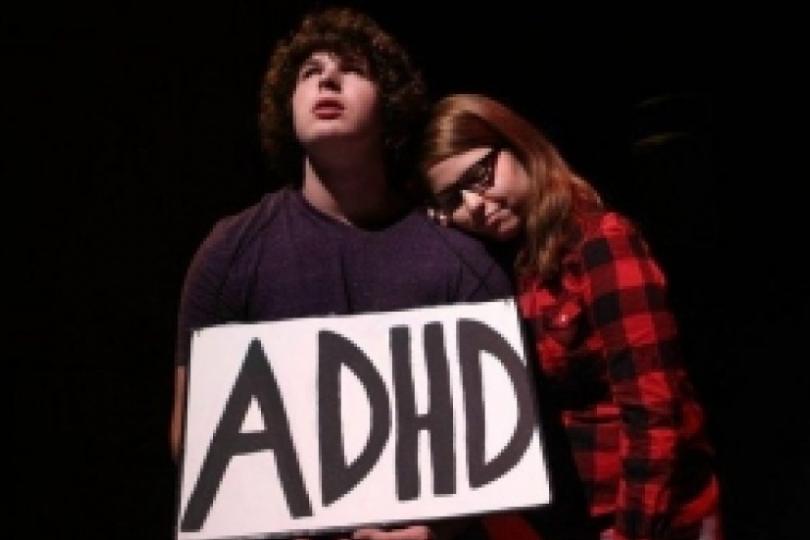Art, truth and transformation
Editorial

In 2006, a counselor at a residential treatment center began offering acting classes once a week to teens living there. The classes had a profound effect on the kids’ lives. Diagnosed with a host of mental illnesses, these teens, many of whom had committed crimes and were deemed “unfit for society” by the judges who sent them to the center, poured themselves into acting. As a result, they flourished for perhaps the first time in their lives. One of them said The Laramie Project, one of they plays they worked on, was the best thing she’d ever done.
The counselor was Adam Arnold. In 2007, the treatment center where Arnold worked was bought by a larger company, which began eliminating the art-therapy programs as a cost-saving measure. Arnold resigned from his position and took his passion for theater with him, founding blank slate theatre, a youth performance company that’s beginning to get some serious attention.
In a recent phone interview, and in an essay titled "Better than Therapy" published in Interfaithings (which is also linked on blank slate’s website), Arnold stressed again and again that the arts are a tremendous change-agent for individuals and for society. As a residential counselor, and as blank slate’s founder and producer, he’s witnessed firsthand how art allows people to reach deeper into themselves than they ever thought possible—to face the darkest parts of themselves and others—and to transform that insight into understanding and empathy.
blank slate’s first production was Disordered: [thy name is teenager]—a play that won the company instant recognition among local therapy organizations and is currently being produced worldwide. Arnold began writing Disordered during his time at the treatment center as a way of processing his observation that teens’ diagnoses often start out as helpful insights, but become harmful labels. “What I saw happening was that kids would come up to me and say, ‘Hi, I have ADHD, ODD, OCD, and oh, by the way, my name is Brian,’” he says.
Even though the teens of blank slate are ambitious, driven and engage in activities like theater and choir—in spite of their disabilities—they have insight into how labeling happens in their schools and communities. So Arnold asked them to help him finish Disordered, a series of monologues about teens with mental illnesses.
Since 2007, blank slate has put on 14 full-length productions. And while Arnold coordinates all the efforts, the youth-driven company puts teens and children fully in charge. The company plans each season of four or five productions, including one musical, and divides up responsibilities for sets, costumes, props and other necessities among the members. And all are committed to the mission—theater for social transformation—and choose productions they feel will have a positive impact on the larger community.
And the community has responded favorably. Several dedicated parents are amazingly committed to allowing their children to work with sometimes controversial subject matter. “We like to do shows that are honest and truthful,” says Arnold, “which usually means we’re doing shows that are pretty edgy, rather than sugar-coating things. And we have fantastic parents. They really are courageous and creative and cool, and they encourage their kids to participate in this truthful theater. They trust us at blank slate to dive into some pretty dicey issues, so the parent support has been phenomenal.”
Underscoring blank slate’s mission as socially transformative theater is the “third act”—a talkback or discussion among cast, crew and audience that occurs after each show. These discussions have solidified the blank slate community and have helped the teen participants to gain even deeper insights into such issues as the ways in which society perceives and treats its children and young adults.
“There is a line in Disordered where a character says that teenagers are the last group against which you can legally and acceptably discriminate in America,” Arnold explains. “I couldn’t agree with that more. I have often been alarmed at how we treat our children and teens—particularly teens. A lot of adults, in my observation, are very cruel to teenagers and children, and I think it’s often because they can get away with it. It’s kind of normal and accepted to scream at children and teens and demean them, and there are not a whole lot of people defending them and standing up for them. So I hope that, with these plays, we will authentically show the teenage experience which, of course, is a wide range of experiences, in the hopes that it creates some compassion on what the teens might be going through.”
The outcome also being, of course, that these compassionate, committed teens become part of a new generation of empathetic and emotionally healthy adults, engaged with theater and its ability to transform lives.




